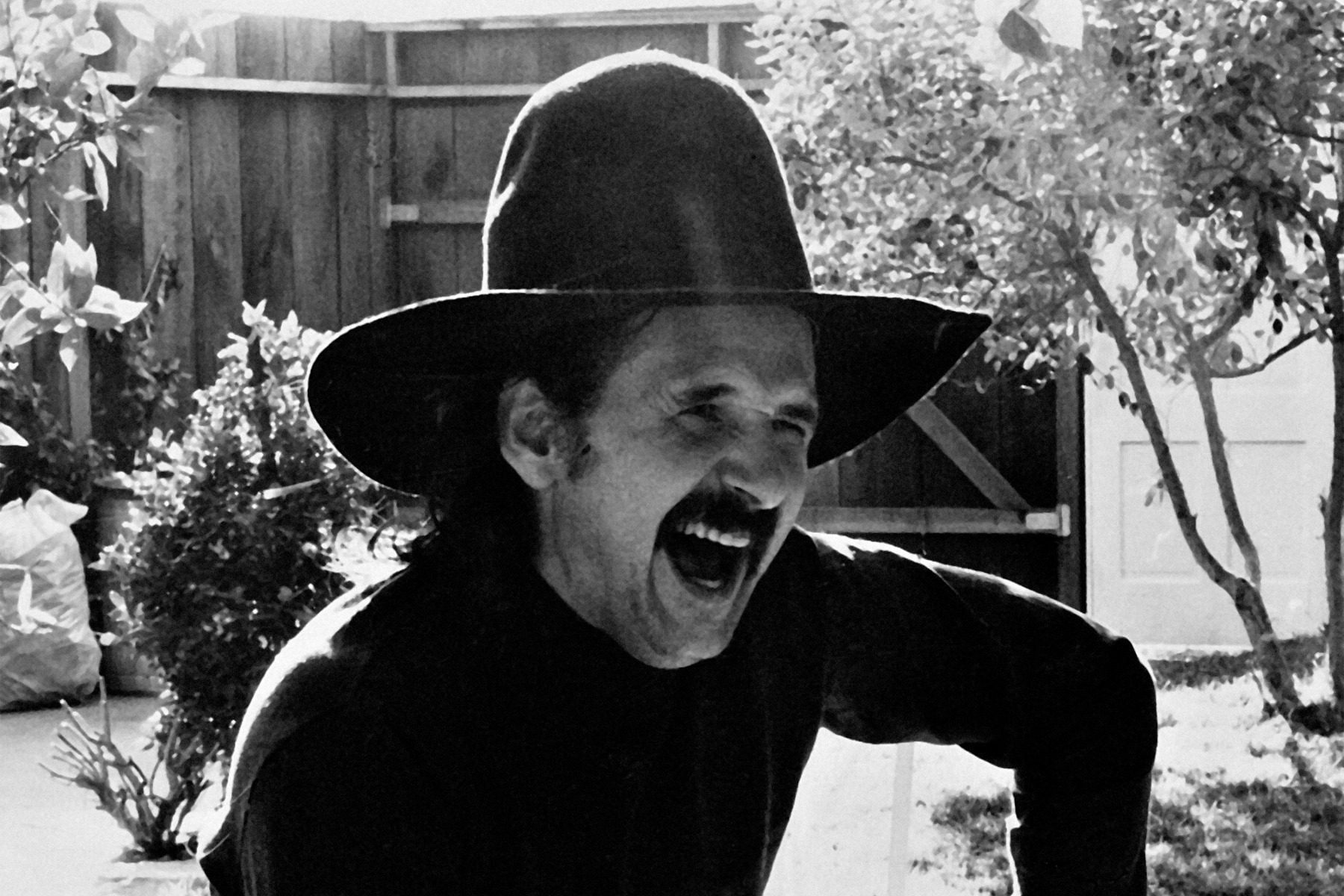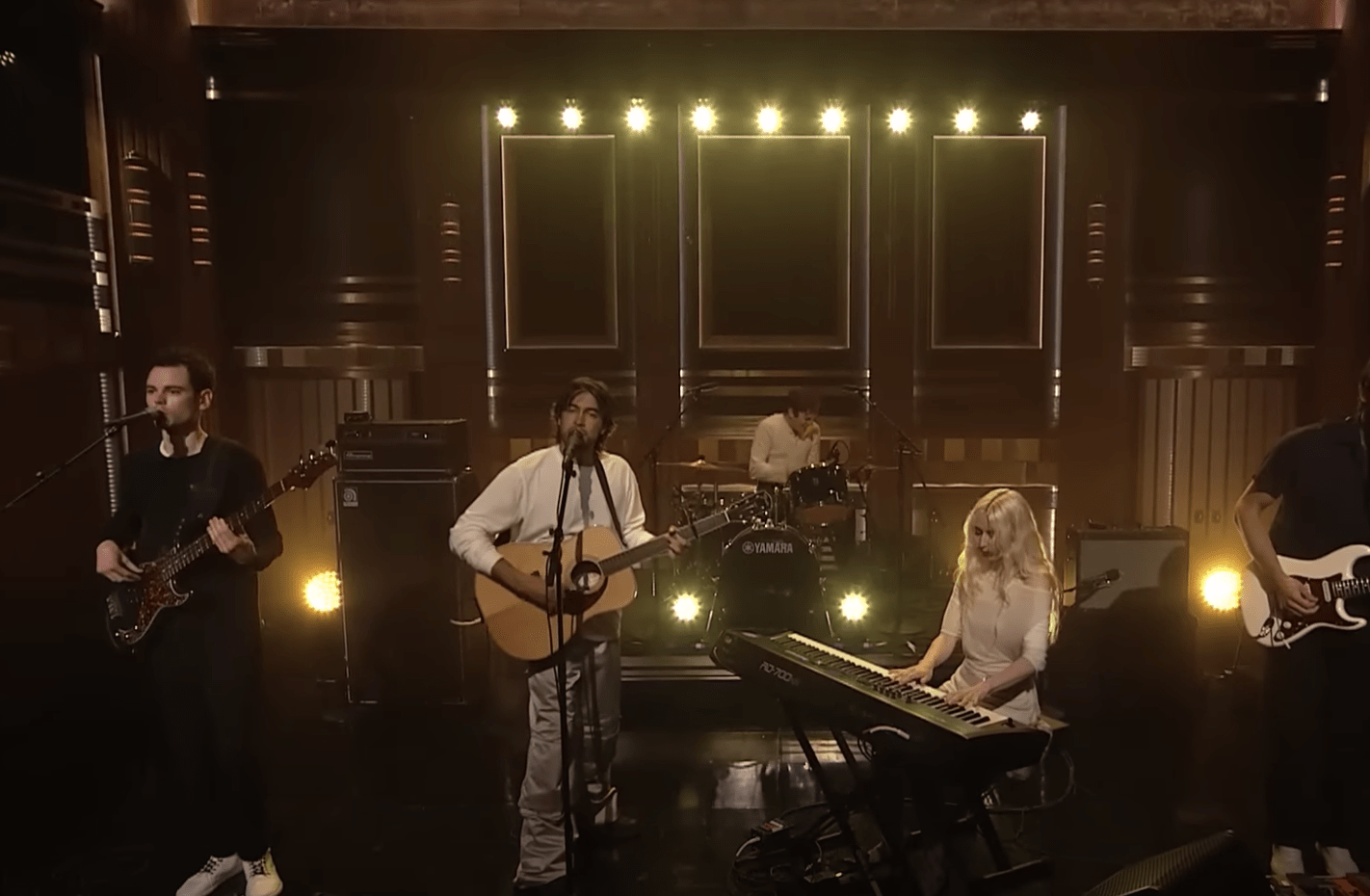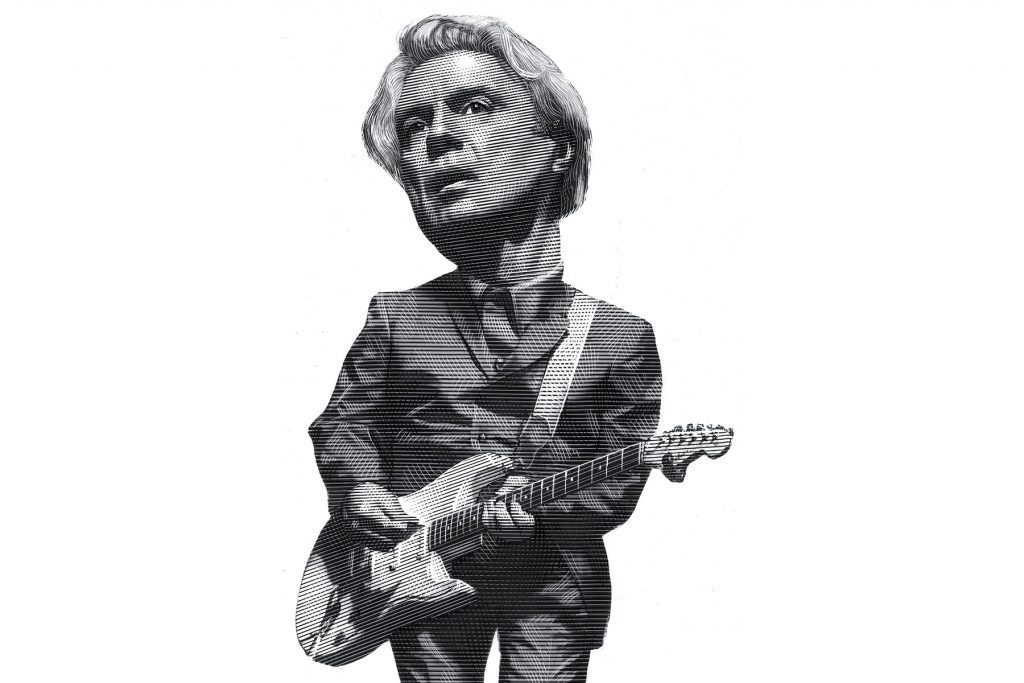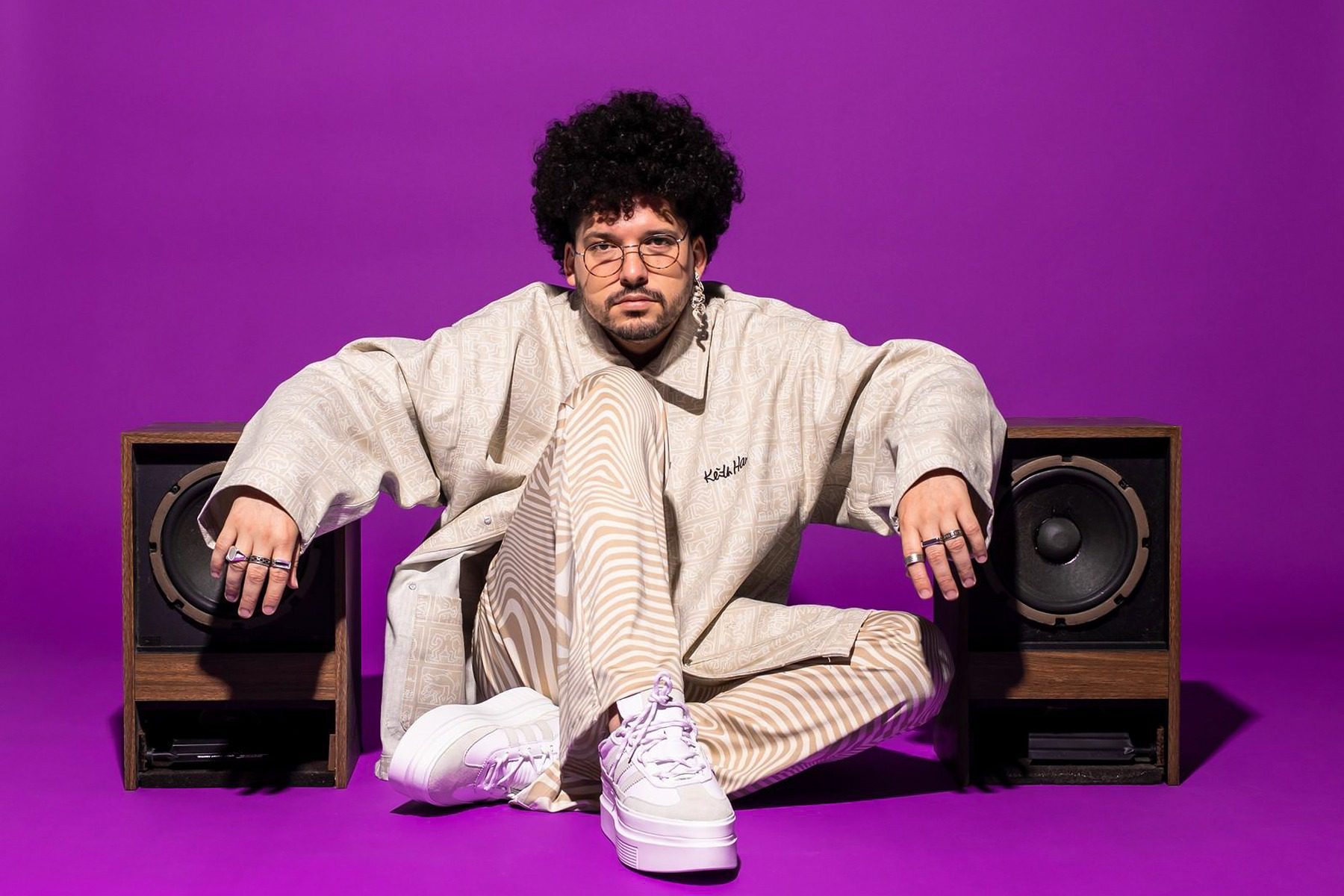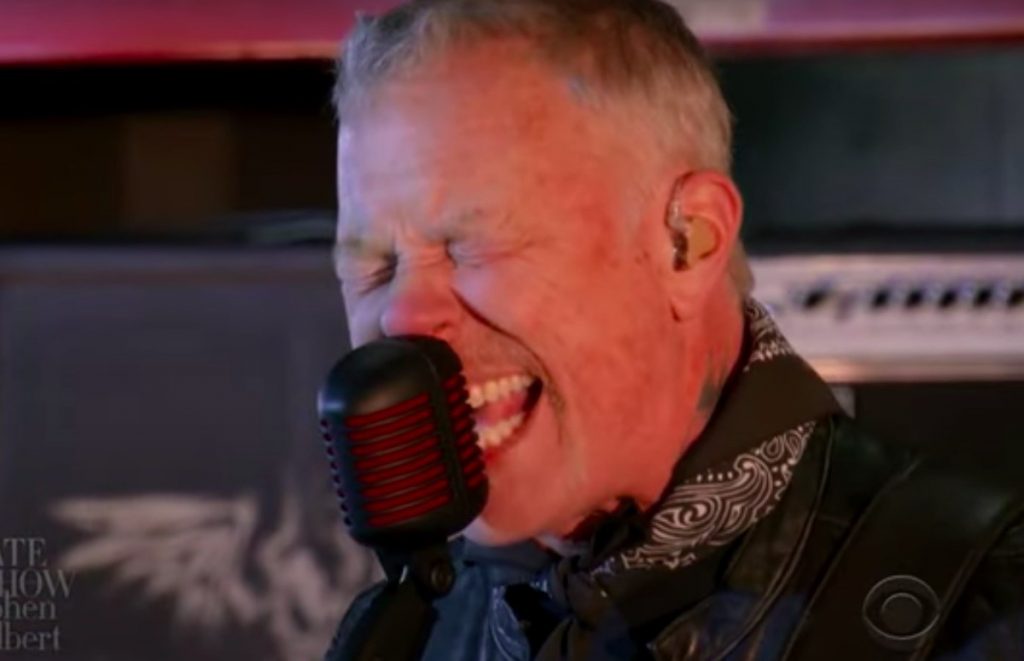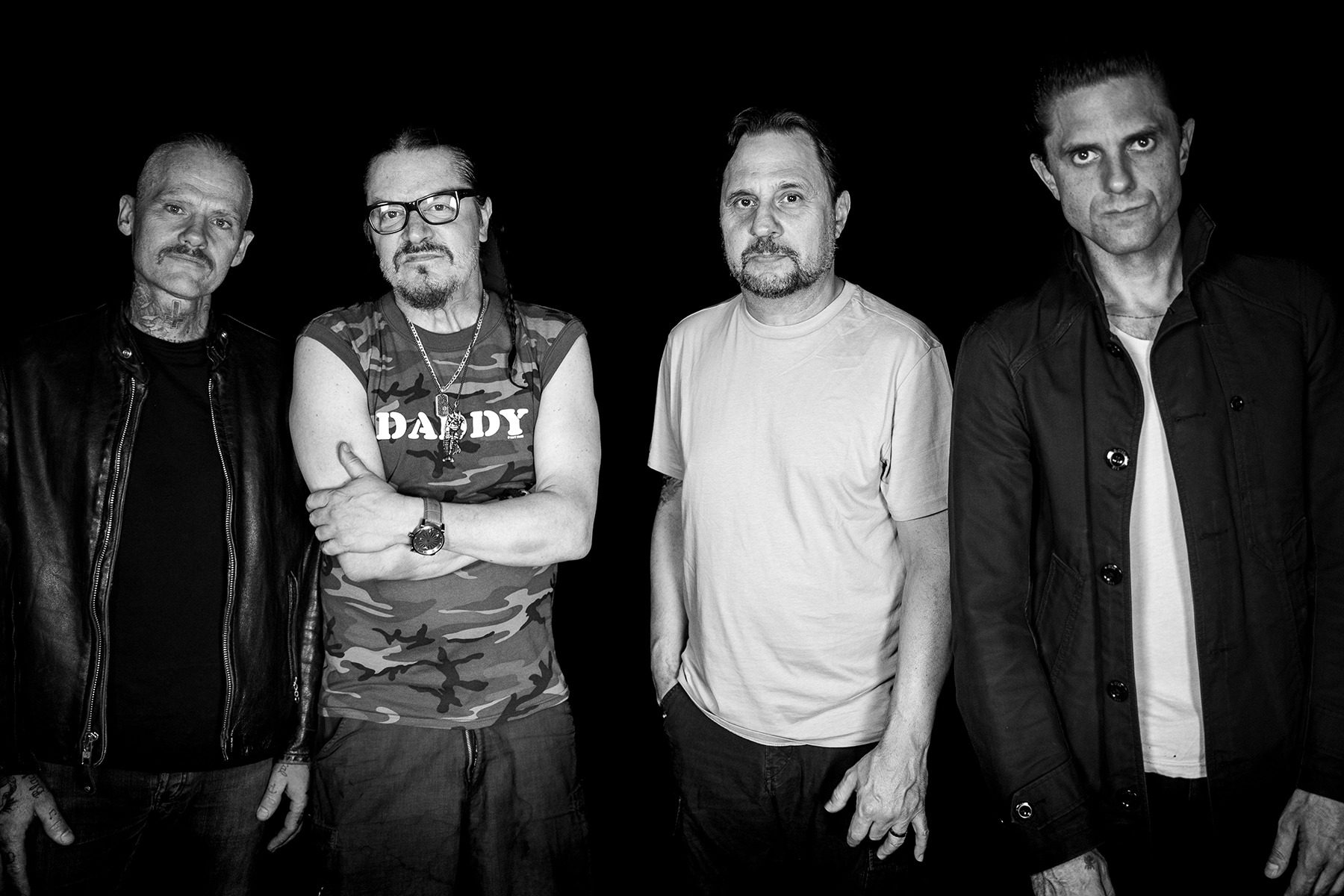
‘Isolated, Antisocial and Afraid of People’: Mike Patton Is Finally Ready to Talk About Last Year
To the surprise of everyone on his team, Mike Patton wants to talk about how his life derailed over the last few years. “It’s funny because my manager and publicist were like, ‘Do you want to talk about mental health [in an interview]?’” he says. “’They’re gonna ask you these questions. We can say no.’ And I’m like, ‘No. Let them ask what they want. I got nothing [to hide].’ It actually helps to talk about this shit, you know?”
Now that Dead Cross, the hardcore-punk supergroup he joined in 2016, are gearing up to release a second album, he’s ready to open up. And when you ask just how the record came together, he just laughs. “Oh, boy,” he says. “How much time you got?”
The band, whose last release was a 2020 cover of Black Flag’s “Rise Above,” has been trying to rise above ever since. First, guitarist Michael Crain, who also plays in Retox, was diagnosed with Covid and later advanced cancer. (He has since gone into remission.) The cancer scare inspired him to write a series of devastating riffs as a means of catharsis that he recorded with his Dead Cross bandmates, bassist Justin Pearson (also of Retox and the Locust) and drummer Dave Lombardo (Suicidal Tendencies, Misfits, formerly of Slayer.)
Patton recorded his vocals alone at his home studio, which wouldn’t be a big deal if he hadn’t been diagnosed with agoraphobia during the pandemic. That issue came to a head last fall when his bands Faith No More and Mr. Bungle hoped to return to the road and he realized he couldn’t leave the house, citing “mental health reasons” for the groups’ cancellations. In April, the Locust drummer and Dead Cross’ original vocalist Gabe Serbian died, though a cause of death has yet to be released.
Despite these hardships, the group moved forward with Dead Cross II. “The music was there, and the drive was there,” Patton says, his voice sounding upbeat and energetic. “And after what Crain had been through, it’s like, ‘Hey, we got to do this.’ It’s really kind of no question of whether or not to continue.”
The album, due Oct. 28, has the same fury of its predecessor with all the spasmodic, head-turning weirdness Patton fans expect. The vocalist whispers, shouts, and screams, trading vocals with Pearson, on songs about gun control (“Christian Missile Crisis”), loving someone so much “that I could shit” (“Love Without Love”), and how humanity is its own worst enemy (lead single “Reign of Error”). Along the way, Patton, in typically violent bursts, namechecks Billy Joel, Vince Neil, and Chi Pig, the late frontman for Canadian punks SNFU. Like Patton himself, the album is utterly unpredictable.
Patton is still unsure whether Dead Cross will tour, given his uncomfortableness around touring. He’ll attempt life on the road in December with a couple of dates with Mr. Bungle, if his mental health allows. Right now, Patton is taking everything day by day and is surprisingly candid when talking about his struggles.
How did you decide to move forward with Dead Cross II?
The other guys started recording it pre-pandemic. But our guitar player got Covid and then got diagnosed with cancer. What do you even say about that? It’s like, “Jesus Christ.” I thought, “OK, well, let’s shelve this for a while until … ” But man, he was an absolute trooper. And he said, “No, I need to make this record. It’s going to heal me. It’s going to make me feel better. It’s going to be my cure in a way.” And goddamn it, he was right. And he beat it. And then I was going through some shit, too — not to skirt that — so basically, this record took way longer than it should have.
When Faith No More and Mr. Bungle canceled their concerts, you released a statement citing problems with your mental health. Can you talk about what you were going through?
It’s still going on — but it’s better. [Pauses]. It’s easy to blame it on the pandemic. But I’ll be honest, man: At the beginning of the pandemic, I was like, “This is fucking great. I can stay home and record.” I’ve got a home studio. So I was like, “Yeah, what’s the big deal?” And then something clicked, and I became completely isolated and almost antisocial [and] afraid of people.
That sort of anxiety, or whatever you want to call it, led to other issues, which I choose not to discuss. But I got some professionals helping me, and now I’m feeling better and getting closer to diving back in. Towards the end of the year, I’ll be doing my first shows in, like, two years, which is the longest time since I started doing this, that I’ve been out of the game.
When you say you had other issues, do you mean substances? Alcohol?
It was a little bit of everything. But mostly, in my experience, it was mostly mental. I saw some therapists and all that stuff, which is the first time I ever had to do that in my life. And they basically diagnosed me as having agoraphobia; like, I was afraid of people. I got freaked out by being around people. And maybe that was because I spent two years basically indoors during Covid. I don’t know. Maybe it reinforced feelings that I already had. But just knowing about it, talking about it, really helped. And we’ll see how it goes in December.
At what point did you realize, “I have a problem”?
Right around the time that Faith No More was about to go back on the road. That’s when I kind of lost it, and it was ugly and not cool. A few days before we were supposed to go on the road. I told the guys, “Hey man, I don’t think I can do it.” Somehow my confidence was broken down. I didn’t want to be in front of people, which is weird because I spent half of my life doing that.
It was very hard to explain. And there were some broken feelings on both sides about it, but it’s what I had to do. Because otherwise something really bad could have happened.
Had you been rehearsing with Faith No More?
Nope. It was right before our first rehearsal, and I just freaked out. I just said, “I can’t do it.” They had been rehearsing so [pauses] If I were them I’d be really pissed off at me. And they were. And they probably still are. But it’s just about being true to yourself and knowing what your limits are. And I knew that if I kept pushing, it could have been some sort of disastrous result. It was just like, “Goddamn it. Maybe I don’t need to do this. Even though I agreed to do it, and it’s gonna bum a lot of people out. I gotta take care of myself.” So I’m getting better at that.
Where do things stand with Faith No More now?
Radio silence. [Laughs]. I don’t know. We may reschedule stuff; we may not. I’ll just leave it at that. It’s a little confusing and complicated. So if we do, we do. If we don’t, that’s cool, too.
“I got freaked out by being around people. And maybe that was because I spent two years basically indoors during Covid.”
How do you feel about being around people now? Did you want the Dead Cross guys in the room with you when you recorded?
I recorded all that stuff by myself. [Laughs] So I don’t know but I’m feeling better and feeling more secure and feel like my confidence is coming back. And now I gotta dip my toe back in the water at some point and just see how it goes. So that will be in December with Bungle in South America.
Do you have a plan for how you’re going to feel ready to perform again?
Keep doing what I’m doing. Keep seeing who I’m seeing and listening and just trying to stay grounded and not freak out. That’s the plan.
What keeps you grounded?
My dogs keep me completely at peace. And my garden; that really helps. And also the help that I’m getting, like, psychotherapy, psychiatrists, all that stuff. Even though it can be labor-some, I know that it’s helping me. And then also AA, I gotta admit, really is helpful.
I’ve always admired AA’s “serenity prayer.” It felt especially important during lockdown like, “OK, this is what I can change. This is what I don’t have control over.”
Yeah, that’s a great thing. Even during the pandemic, it was like going to online meetings instead of in-person, that shit still works. It’s all about the ritual of it. There’s some amount of it that gets repetitive, but the more that you do it, the deeper it goes. That’s what all my friends tell me, so…
I’m sure having a routine, like making albums, helps.
Oh, for sure. But those also have some downsides meaning I’ll get back into bad habits, when I’m doing that kind of stuff [and] when I’m working the way that I used to work. So I’m changing the way that I work a little bit not so manic and obsessive and just letting it come when it comes.
You mean that in the past you’ve felt like you’ve had to push the muse to make music?
Yeah, exactly. [Now I realize], “Hey, it doesn’t have to happen tonight. It can happen tomorrow, or the next day or the next day.” And the only pressure that’s being applied to me is by me. When you realize that sometimes you’re your own worst enemy, if you could come to grips with that, then things open up way easier and less pressurized.
“I’ve replaced two singers in two different bands in my life, and both of them are dead. What am I supposed to make of that? It’s a hard thing to digest.”
Do you have anyone helping you out when you’re creating?
Not when I’m recording, no. I record alone. I have an engineer if I need him, but normally I can do it myself. That’s cool. But like, for the rest of the time, I do have support.
You told IndieLand at the beginning of the pandemic that you were working on several projects. Was Dead Cross just one of those?
Yeah. That one was done almost a year ago. It’s coming out now, which is wild. But yeah, I got a couple of things going now that I’m really excited about and they’re a complete detour from what I’ve done in my past. But that’s all I can tell you.
What could “a complete detour” possibly mean for you? Haven’t you done everything?
Trust me, it’s different. And it’s really cool and very exciting. But we made an agreement — at least for this first project — to not talk about it, so I can’t tell you what exactly what it is. But to me, it’s completely invigorating and came along right at the right time. This is what I needed.
At the moment, though, you’ve got this Dead Cross album coming out. What is it about heavy music that still attracts you?
Well, that depends on what you mean by heavy music? You mean, like, loud, aggressive shit?
Yes.
I don’t know. It’s in my blood. With Dead Cross in particular, I’d never been in a straight-up hardcore punk band like that before; I always leaned more on the metal side. So to me it was really attractive.
When Gabe quit [in 2016] — rest in peace, by the way — Dave [Lombardo] texted me and said, “I know you’re gonna say no. But might you be interested in something like this?” And I immediately said, “Absolutely 100 percent. Let’s go.” It just made sense at the time. Like this project I can’t tell you about, I didn’t seek it out. It just happened. I guess maybe I’m an opportunist in that way. It’s not like I conceive all of these things; they happen around me. And then I go, “Oh, maybe I can jump in that pool? Or maybe not.” That’s just the way my mind works.
What made you want to do another Dead Cross album in particular?
Well, because the first one was so fucking good. We had such a good time when we toured, and it worked. And there are many other projects that I’ve done in a recording studio that maybe worked as a record, but we didn’t tour; you didn’t develop a camaraderie, a sense of team. With Dead Cross, it did. And it just made me think, “Yeah, this is something that I got to keep doing.” And when they started recording, and they were sending me stuff, I was like, “Oh, God. This is amazing.” And it’s different. It’s a little more nuanced. It’s slightly more melodic. And there’s more, I think, dynamism in it. And that’s right up my alley.
You were friends with Gabe and I’m sure his shook everybody up. How did his death affect Dead Cross now? Was it hard to want to release this album?
I still can’t believe he’s gone. I don’t know how the other guys really reacted to it, other than the fact that when something like that happens, it’s not easy. And there’s no clear emotion to come through. Meaning you’re sad. You’re bummed. You’re angry, and at times even, like, resentful. When that kind of deaths happens, nobody saw it coming. Nobody.
We all had mixed emotions. But the main one was love. We love the guy and personally, I had a few different projects that I wanted to work with him as a drummer. He’s an insane drummer, like, one of the greats in my opinion. And we’d never got to do it. And that’s one thing that I’ll always look back on. Like, goddamn it.
And there’s plenty of other things. To be honest, I’ve replaced two singers in two different bands in my life, and both of them are dead. What am I supposed to make of that? It’s a hard thing to digest.
Considering that and Michael Crain’s cancer, it’s a bold thing to move forward.
There was no question: We’re doing this. It was more so that we didn’t talk about it. We just did it. So I think there’s a group mentality there.
“[Touring] is not a matter of ‘want’; it’s a matter of, ‘Can I?’”
I like some of the risks you took on the album, like whispering on “Love Without Love.” You don’t hear that too much in hardcore.
Yep. And that’s sort of the point. “Hey, where can we take this?” Like, “Where do you go from 100 miles an hour to 30 and then still make you want to be in the car?”
And in the same song you say, “I love you so much,” which isn’t very punk rock, but end the line with “that I could shit.”
I’ve been saying that my whole life. That was just a normal thing for me. That’s my vernacular.
Did you sing everything on the new album?
No. I would say about half of them are JP [Justin Pearson]. If you listen closely, you can really tell, because he’s got this crazy high screaming voice. And I knew that he had that from the get-go. I toured with the Locust, and I’ve been friends with them for years. One regret that I have about our first record was that we didn’t use his voice enough. Like, it’s a total weapon to have in our arsenal. So when I was writing the lyrics I was very conscious of, “OK, wait, that’s for him. That’s for me.” It’s a ping-pong kind of vocal approach. And I think we did pretty good.
I’ve heard you do a lot of different voices, so I wasn’t sure.
I can’t quite do what he does. It’s different. And having that dual vocal approach is super powerful. I loved that about a bunch of bands, but the first one that comes to mind is Suicidal Tendencies. Think about a song like “Suicide’s an Alternative.” It’s just back and forth. I love that. I naturally have a deeper voice than [JP] does. I was just like, “Do you and I’ll do me, and I’ll counter it.” I think we worked that very well on this record.
You wrote the lyrics to “Reign of Error,” right? That has a similar theme to “Christian Missile Crisis,” since you’re singing, “We’re the problem.”
Duuuh. I’m not saying anything that we don’t know.
On “Strong and Wrong,” you sing, “Time to wake up and puke,” and you make “puke” really sound like vomiting. Does it hurt to sing like that?
Oh, hell no. But that came from personal experience because one day — and I don’t know why — the first thing I did was just like “Oh, ah, [puke sound].” No reason, no booze, nothing. I just, like, woke up and puked. And so I wrote it down.
Do you know who was really good at puking on cue? Gabe Serbian. He was amazing. I remember watching the Locust when we were on tour with them with my band Fantômas. He would do a drum fill and puke in the middle of the fill and then still make the next downbeat. Like, all these drums, blech, [drumming sound]. It was absolutely impressive. He was a pro.
Do you foresee touring with Dead Cross?
We’ll see. Who knows? I gotta get my feet wet first, but, but at some point, I’d love to. I really would.
I’m sure it’s all just step by step with you.
Yeah, we’ll see. But I would pretty much count on it. At some point. I don’t know when. But the record’s too good. I want to play it live. I really do. I know those guys do, too.
It sounds like you still want to do perform live, but it just was not working out at that time.
It’s not a matter of “want”; it’s a matter of, “Can I?” And that’s what I’ve got to figure out. I think I will in time. And yeah, we’ll take it, like you said, step by step.
